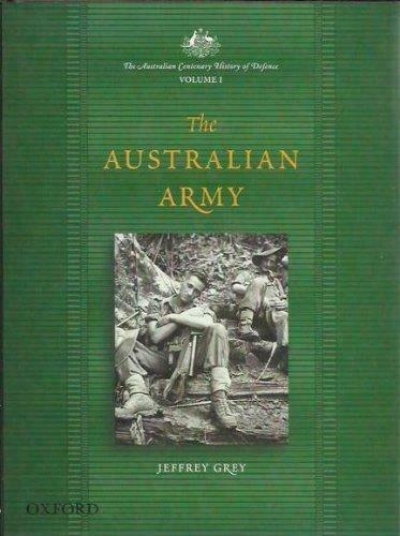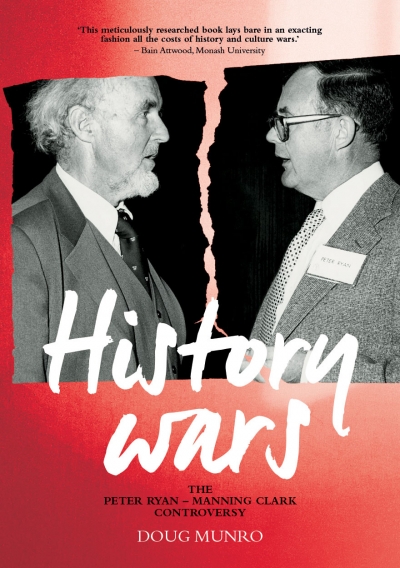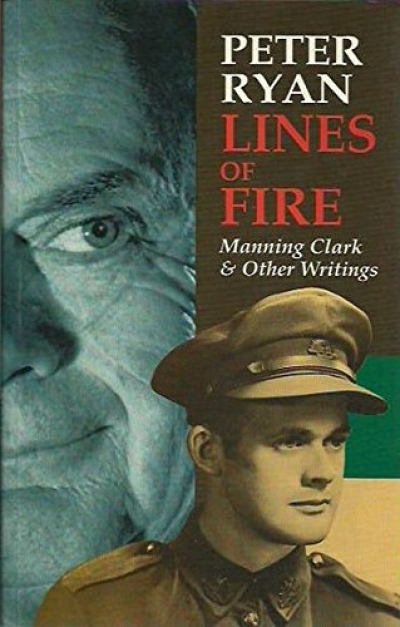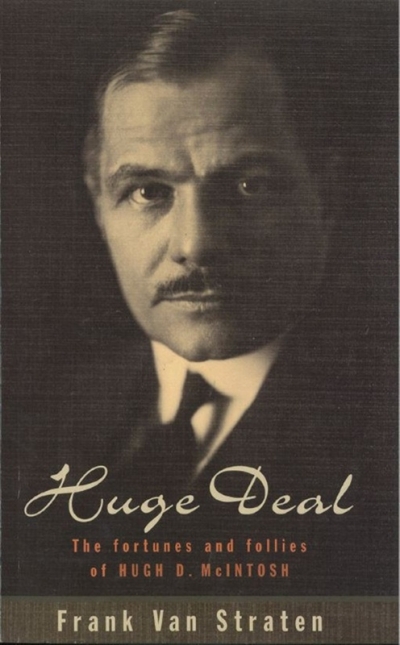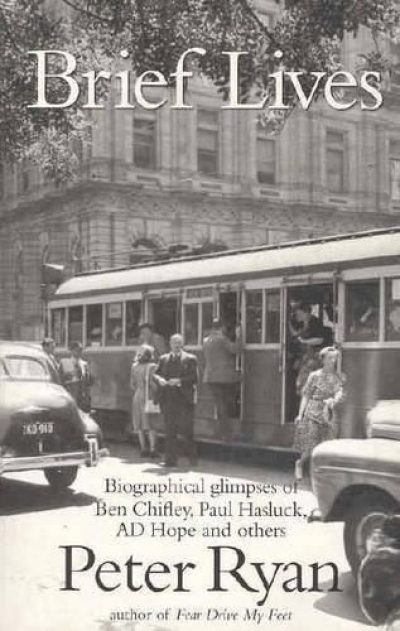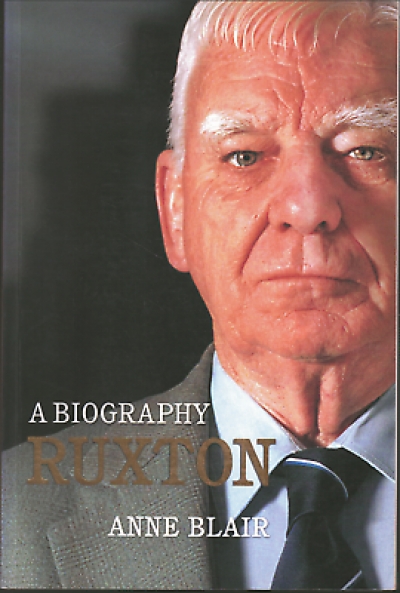Peter Ryan
The Australian Centenary History of Defence: Vols. I–VII edited by John Coates & Peter Dennis
by Peter Ryan •
History Wars: The Peter Ryan–Manning Clark controversy by Doug Munro
by Mark McKenna •
Lines of Fire: Manning Clark and Other Writings by Peter Ryan
by Peter Pierce •
Huge Deal: the fortunes and follies of Hugh D. McIntosh by Frank Van Straten
by Peter Ryan •
On the Warpath: An anthology of Australian military travel edited by Robin Gerster and Peter Pierce
by Peter Ryan •
Australia’s Boer War: The war in South Africa 1899–1902 by Craig Wilcox
by Peter Ryan •

